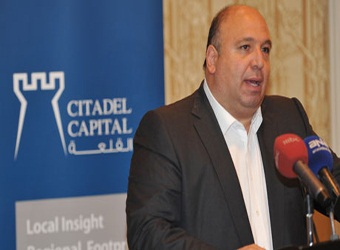Egypt’s Citadel Capital SAE (CCAP.CA) will “aggressively” sell assets in “non-core” industries after it completes a capital increase, as it transforms itself from a private equity firm into an investment company, said Chairman Ahmed Heikal.
Speaking in an interview at the World Economic Forum in Davos, Switzerland, Heikal said the assets will fetch “good valuations” as investors welcome a government plan to return to democracy after the army ousted President Mohamed Mursi in July. Completion of the 3.64 billion Egyptian pound ($523 million) rights offering may be delayed until mid-March for regulatory reasons. “The money is there,” he said.
The rights offering will allow Cairo-based Citadel Capital, which has about $10 billion invested in 15 sectors, to take majority ownership of companies in five industries including energy, transportation, mining and cement. Founded in 2004 with headquarters overlooking the Nile, the firm and its units have investments in Egypt, the Middle East and Africa.
“You will see us aggressively making disposals,” he said. Citadel may also “make incremental investments in companies we already own,” he said. Citadel’s shares rose 1.6 percent to 3.76 pounds at 11:04 a.m. in Cairo.
The company said on Jan. 16 that it invested 2.63 billion Egyptian pounds in asset purchases and add-on investments as part of the transformation plan.
Shares Rally
Egypt’s benchmark EGX 30 Index of stocks has rallied more than 40 percent since Morsi’s removal. The majority of Egyptians approved a new constitution in a referendum last week, paving the way for presidential and parliamentary elections.
“We are very bullish on Egypt,” Heikal said, according to the Washington Post. “The risk- return trade-off in Egypt is a fantastic one.”
The company’s projects include a $3.7 billion oil refinery in Cairo, which Citadel expects to provide half of the diesel Egypt now imports. Twenty-six percent of the project, which is “progressing very nicely,” is complete, Heikal said.
Citadel may also select one or two “strategic partners” for a storage and bunkering project in the Suez Canal region within four months, Heikal said. The project’s capital expenditure may be between $220 million to $380 million, depending on “how big we start,” he said.
“This is a facility that sits on the tip of the Suez Canal and the Mediterranean,” he said. “Everybody needs to pass there.”


